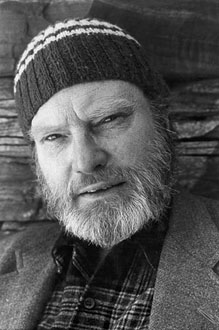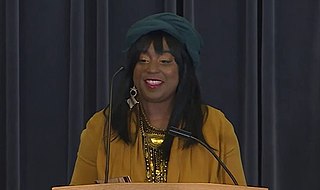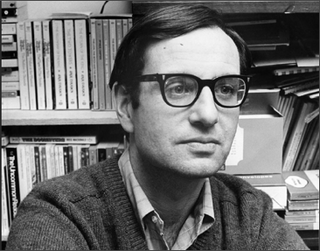Related Research Articles

Theodore Huebner Roethke was an American poet. He is regarded as one of the most accomplished and influential poets of his generation, having won the Pulitzer Prize for poetry in 1954 for his book The Waking, and the annual National Book Award for Poetry on two occasions: in 1959 for Words for the Wind, and posthumously in 1965 for The Far Field. His work was characterized by its introspection, rhythm and natural imagery.
Tess Gallagher is an American poet, essayist, and short story writer. Among her many honors were a fellowship from the Guggenheim Foundation, National Endowment for the Arts award, Maxine Cushing Gray Foundation Award.
Gladys Cardiff is a poet and academic, with interests in Native American, African-American and American literature. She was an associate professor at Oakland University from 1999 to 2013.

Sherman Joseph Alexie Jr. is a Spokane-Coeur d'Alene-Native American novelist, short story writer, poet, screenwriter, and filmmaker. His writings draw on his experiences as an Indigenous American with ancestry from several tribes. He grew up on the Spokane Indian Reservation and now lives in Seattle, Washington.

Edward M. Hirsch is an American poet and critic who wrote a national bestseller about reading poetry. He has published nine books of poems, including The Living Fire: New and Selected Poems (2010), which brings together thirty-five years of work, and Gabriel: A Poem (2014), a book-length elegy for his son that The New Yorker called "a masterpiece of sorrow." He has also published five prose books about poetry. He is president of the John Simon Guggenheim Memorial Foundation in New York City.

Hayden Carruth was an American poet, literary critic and anthologist. He taught at Syracuse University.

Sheree Renée Thomas is an American writer, book editor, publisher, and contributor to many notable publications. In 2020, Thomas was named editor of The Magazine of Fantasy & Science Fiction.
Nationality words link to articles with information on the nation's poetry or literature.
Pattiann Rogers is an American poet, and a recipient of the Lannan Literary Award for Poetry. In 2018, she was awarded a special John Burroughs Medal for Lifetime Achievement in Nature Poetry.

Carolyn Ashley Kizer was an American poet of the Pacific Northwest whose works reflect her feminism. She won the Pulitzer Prize in 1985.
Milton Kessler (1930-2000) was a poet and academic who spent most of his career at Binghamton University. He was one of the founders of the institution's creative writing program.
James L. White was an American poet, editor and teacher.
Willis Barnstone is an American poet, religious scholar, and translator. He was born in Lewiston, Maine and lives in Oakland, California. He has translated works by Jorge Luis Borges, Antonio Machado, Rainer Maria Rilke, Pedro Salinas, Pablo Neruda, and Wang Wei, as well as the New Testament and fragments by Sappho and pre-Socratic philosopher Heraclitus (Ἡράκλειτος).
David Russell Wagoner was an American poet, novelist, and educator.
Terry Randolph Hummer is an American poet, critic, essayist, editor, and professor. His most recent books of poetry are After the Afterlife and the three linked volumes Ephemeron, Skandalon, and Eon. He has published poems in literary journals and magazines including The New Yorker, Harper's, Atlantic Monthly, The Literati Quarterly, Paris Review, and Georgia Review. His honors include a Guggenheim Fellowship inclusion in the 1995 edition of Best American Poetry, the Hanes Prize for Poetry, the Richard Wright Award for Literary Excellence, and three Pushcart Prizes.

Ralph J. Mills Jr. was an American poet, scholar and professor.
Cedar Sigo is a Suquamish American writer of art, literature and film.
Tiffany Midge is a Native American poet, editor, and author, who is a Hunkpapa Lakota enrolled member of the Standing Rock Sioux.
Roberta Hill Whiteman is an Oneida poet from Wisconsin. She is known for the collections Star Quilt (1984) and Philadelphia Flowers (1996). She received the 1991 Wisconsin Idea Foundation's Excellence Award.
"Root Cellar" is a poem written by the American poet Theodore Roethke (1908-1963) published in Roethke's second collection, The Lost Son and Other Poems, in 1948 in Garden City, New York. The poem belongs among Roethke's series of "Greenhouse Poems" the first section of The Lost Son, a sequence hailed as "one of the permanent achievements of modern poetry" and marked as the point of Roethke's metamorphosis from a minor poet into one of "the first importance", into the poet James Dickey would regard among the greatest of any in American history.
References
- 1 2 3 4 5 "Duane Niatum". Poetry Foundation. Retrieved 2020-10-10.
- ↑ Senier, Siobhan (2019). "Duane Niatum: A Retrospective". Transmotion. 5 (1): 234–240. doi:10.22024/UniKent/03/tm.797 . Retrieved 2020-10-11.
- 1 2 3 "The Art of Survival", Raven Chronicles, David L. Moore Archived December 31, 2008, at the Wayback Machine
- ↑ "Earth Vowels by Duane Niatum". Mongrel Empire Press. Retrieved 2020-10-11.